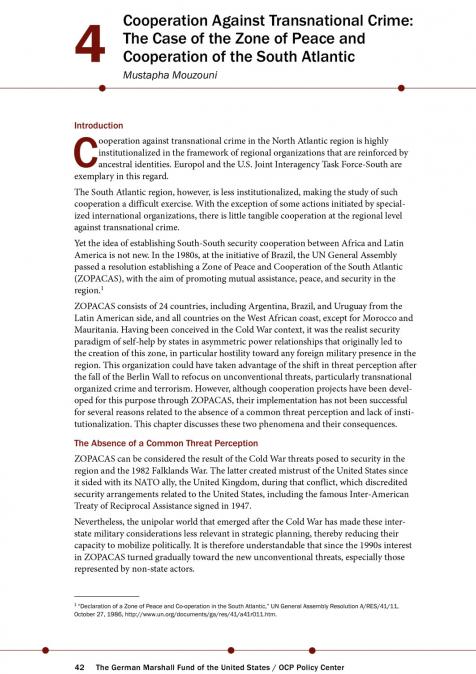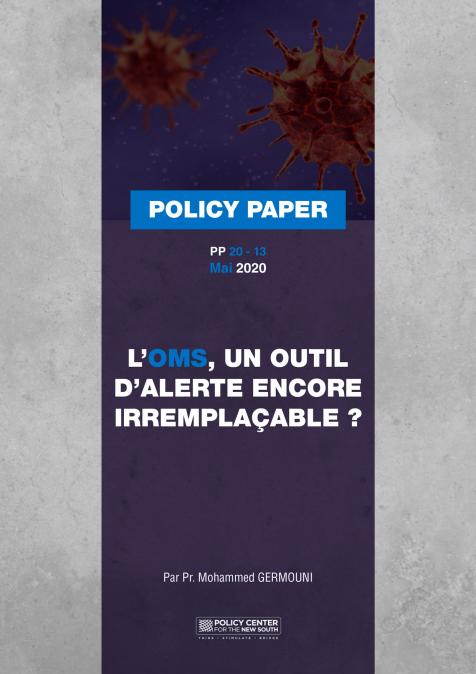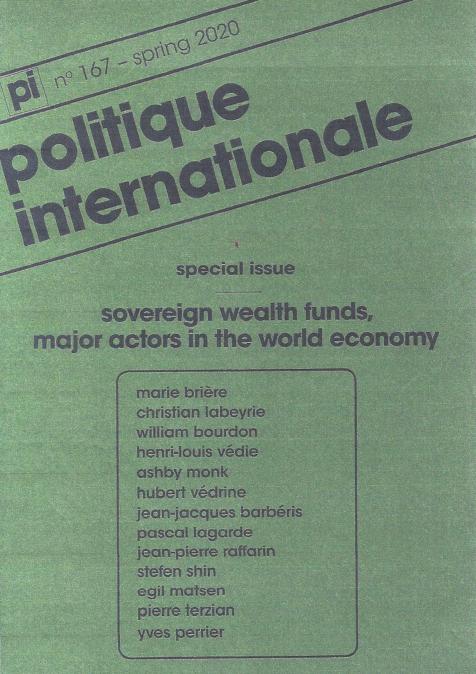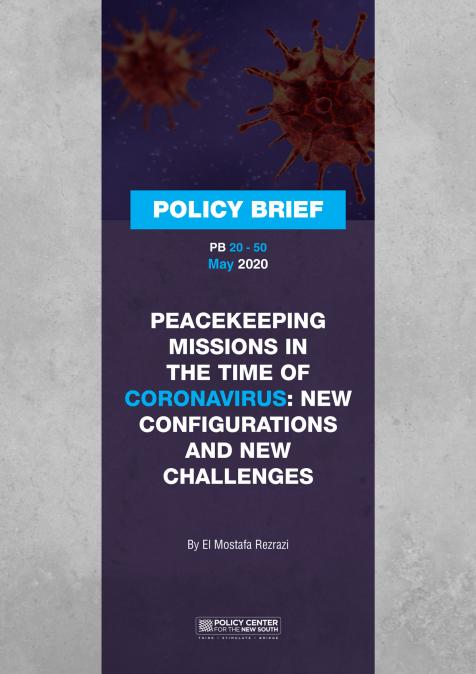Publications /
Policy Brief
Cooperation against transnational crime in the North Atlantic region is highly institutionalized in the framework of regional organizations that are reinforced by ancestral identities. Europol and the U.S. Joint Interagency Task Force-South are exemplary in this regard. The South Atlantic region, however, is less institutionalized, making the study of such cooperation a difficult exercise. With the exception of some actions initiated by specialized international organizations, there is little tangible cooperation at the regional level against transnational crime. Yet the idea of establishing South-South security cooperation between Africa and Latin America is not new. In the 1980s, at the initiative of Brazil, the UN General Assembly passed a resolution establishing a Zone of Peace and Cooperation of the South Atlantic (ZOPACAS), with the aim of promoting mutual assistance, peace, and security in the region.1 ZOPACAS consists of 24 countries, including Argentina, Brazil, and Uruguay from the Latin American side, and all countries on the West African coast, except for Morocco and Mauritania. Having been conceived in the Cold War context, it was the realist security paradigm of self-help by states in asymmetric power relationships that originally led to the creation of this zone, in particular hostility toward any foreign military presence in the region. This organization could have taken advantage of the shift in threat perception after the fall of the Berlin Wall to refocus on unconventional threats, particularly transnational organized crime and terrorism. However, although cooperation projects have been developed for this purpose through ZOPACAS, their implementation has not been successful for several reasons related to the absence of a common threat perception and lack of institutionalization. This chapter discusses these two phenomena and their consequences.







